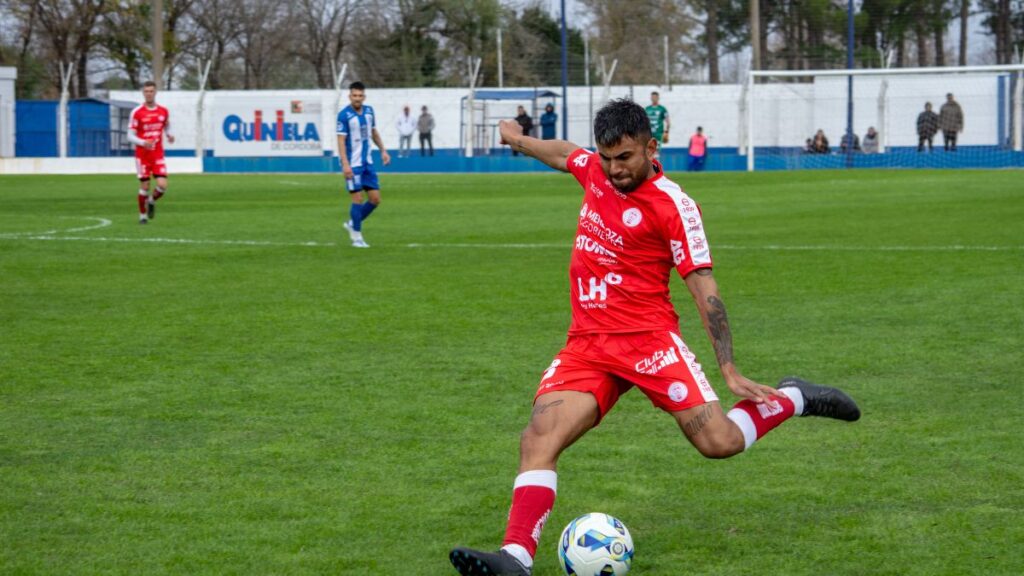Boost your betting experience and get up to $200 bonus right now!
Girona FC stunned Spanish football fans and pundits alike with a breakout season that saw them vault from perennial underdogs to genuine La Liga overachievers. Their rise was the stuff of fairy tales: a club with modest resources thrilling crowds and punching well above its weight. But the shockwaves of that ascent have now given way to an equally dramatic crisis. In 2025, Girona finds itself mired in a relegation battle, struggling to replicate the vibrant team performance that once made them a beacon of hope for smaller football clubs in Spain. The contrasting fortunes beg the question: what’s behind Girona’s sudden tumble? From the brutal realities of sports management and financial fair play restrictions to the seismic impact of player transfers and fixture congestion, their story is a microcosm of the turbulent world of modern football. As La Liga evolves and competition intensifies, the Girona saga offers vital lessons—not just for their fans but for the wider landscape of Spanish football.
Sommaire
ToggleDecoding Girona FC’s Downfall: The Challenges Facing La Liga Overachievers in 2025
Following a meteoric rise the previous season, Girona FC’s current plight is a cautionary tale about the fragility of success in elite football. They pulled off a miracle run, challenging established giants and earning admiration for tactical innovation and team spirit. But as the new campaign unfolded, opposing managers studied their style and exposed vulnerabilities, while Girona’s squad struggled to maintain consistency.
The pressure cooker environment of La Liga demands relentless adaptation. One key difficulty has been sustaining the intensity and cohesion required to repeatedly upset bigger clubs. Girona’s compact squad depth became glaringly insufficient once injuries and fatigue set in. This is a familiar plight among smaller sports management teams that cannot match the bankrolls of traditional powerhouses.
Several crucial factors contributed to Girona’s slump:
- Injury overload: Key players have suffered multiple injuries, severely disrupting the team’s rhythm and forcing frequent tactical reshuffles.
- Stunted player transfers: Unlike dominant clubs that refresh their roster with stars, Girona’s transfer strategy was constrained by financial fair play rules and budget limits, preventing adequate reinforcements.
- Tactical predictability: The once-cutting-edge approach has been well-scouted, diminishing its surprise element and effectiveness.
- Mental fatigue: The psychological toll of being chased by relegation contenders is starkly different from former seasons spent chasing honors.
Without evolved recruitment and shrewd squad rotation, their chances of survival diminish as the season grinds on. Girona’s predicament highlights the complex balance needed to maintain footballing momentum beyond a breakout season. Their stumble serves as a prime example of how quickly overachievers can unravel under sustained pressure.
| Factor | Impact on Girona FC | Comparative Notes |
|---|---|---|
| Injuries | Disrupted core tactical setup; loss of form | Common among teams with limited squad depth |
| Player Transfers | Inability to reinforce key areas | Contrast with top La Liga clubs’ spending power |
| Financial Fair Play | Budget constraints limit squad improvements | Regulates spending, enforcing sustainability |
| Mental Pressure | Impacts player confidence and decision-making | Relegation battles strain morale intensely |
These challenges provide a broader insight into the volatility faced by smaller football clubs in elite leagues dealing with ambitious breakthroughs. Girona must navigate the treacherous waters of La Liga renewal while wrestling with the specter of demotion.

The Role of Financial Fair Play in Girona FC’s Struggles Amidst La Liga’s High Stakes
Financial Fair Play (FFP) has been a game-changer since its introduction, designed to promote sustainability and fairness across European football. But for clubs like Girona FC, with limited revenue streams compared to Spain’s giants, FFP can become a double-edged sword.
While FFP purports to prevent reckless spending and ensure clubs live within their means, it also caps investment opportunities for smaller teams aiming to strengthen their squads. Girona’s bold attempt to remain competitive last season was partly due to maximizing every euro effectively without breaching FFP limits. However, sustaining that model has become tougher as other teams accelerate their investment pace.
Critics argue that the framework inadvertently entrenches existing hierarchies by restricting upward mobility. Girona’s recruitment freezes and inability to refresh with marquee players reflect a harsh financial reality:
- Revenue disparity: Clubs like Real Madrid and Barcelona enjoy giant TV deals and commercial income, dwarfing Girona’s more modest resources.
- Restricted wage and transfer budgets: Girona must balance squad competitiveness with compliance, often sacrificing star signings.
- Impact on youth development: Constrained investments also limit enhancements to academy systems that could otherwise supply homegrown talent.
This budgetary tightrope contributes to the club’s precarious La Liga status. It echoes challenges explored in football culture and management guides, where financial regulations clash with competitive aspirations. Girona’s experience underscores the broader debate around how sports management should evolve to ensure fair competition while encouraging ambition.
| FFP Mechanism | Effect on Girona FC | Effect on Established Clubs |
|---|---|---|
| Revenue Limitations | Severe impact due to smaller fanbase | Minimal as revenues are massive |
| Wage Caps | Restricts ability to offer competitive contracts | Allows big contracts within limits |
| Transfer Spending | Limits squad upgrades | Allows targeted reinforcements |
The crux of Girona FC’s financial dilemma lies in balancing ambition against regulatory realities—a battle all La Liga overachievers must face to avoid falling into the relegation mire. They need smarter, innovative approaches to player transfers and talent development within the FFP environment.
Player Transfers and the Wage Spiral: How Girona’s Squad Changes Are Fueling La Liga Woes
One of the most visible signs of Girona’s struggles is the instability caused by a flurry of player transfers that has unsettled the squad’s core. Last season’s heroes have been chipped away by richer teams eager to poach emerging talents, while replacements have struggled to fill the void.
Turnover in football clubs is nothing new, but Girona’s case is emblematic of a small club caught in the churn. The transfer window has become a high-stakes war room where financial muscle often trumps tactical fit. Girona’s limitations mean they are often sellers, forced to cash in on assets but left scrambling to rebuild:
- Key departures: Several instrumental performers from last season’s heroics were sold or loaned out for vital funds.
- Low-impact arrivals: New signings have mostly been squad players or youngsters, unable to immediately influence results.
- Wage structure issues: Maintaining wage balance to comply with FFP has led to short-sighted contracts that lack longevity.
This revolving door destabilizes team chemistry and weakens command on the pitch. Girona’s tactical identity, carefully cultivated last season, has suffered as roles shift and new recruits require time to adapt. It’s a predicament that many overachievers face after rapid ascents, highlighting the crucial role of strategic sports management.
| Transfer Aspect | Impact on Girona FC | Long-term Risk |
|---|---|---|
| Player Sales | Short-term financial relief | Loss of key talent |
| Replacements | Inexperience and lack of impact | Performance dips |
| Wage Management | Limits retention and motivation | Unstable squad morale |

Fixture Congestion and Squad Rotation: A Double-Edged Sword for Girona FC in La Liga
The modern football calendar is brutal. As Girona FC juggle La Liga matches alongside domestic cup commitments, fixture congestion has become a debilitating headache. Last season, their smaller squad managed careful energy use and tactical focus, but their 2025 campaign has seen fatigue pile up without adequate rotation.
Fixture congestion exacerbates existing weaknesses:
- Physical toll: Increased match frequency leaves players vulnerable to injury and drops in form.
- Limited squad depth: Girona’s inability to rotate effectively stresses core players beyond their limits.
- Tactical rigidity: Overworked players struggle to execute nuanced game plans.
- Psychological strain: Continuous pressure to deliver results can undermine confidence and teamwork.
Other La Liga teams with deeper benches approach fixture pile-ups with rotation strategies informed by analytics and sports science. Girona, by contrast, has less flexibility for rest and recovery, a problem compounded by the ongoing challenges of player transfers and financial constraints discussed earlier.
| Fixture Impact | Effect on Girona FC | Comparative Advantage for Richer Clubs |
|---|---|---|
| Game Load | Overuse of first XI | Squad rotation maintains freshness |
| Injury Risk | Elevated due to fatigue | Better injury prevention protocols |
| Result Consistency | Inconsistent performances | Stable form from rested players |
Managing fixture congestion demands forward planning, but Girona’s current predicament shows how disproportionate burdens stunt smaller clubs’ aspirations. It’s a vivid illustration of systemic imbalances within Spanish football’s top flight.
Mental Fortitude and Team Morale: The Psychological Battle Behind Girona’s La Liga Struggles
Football isn’t just a physical contest; the mental game is often the sharpest edge. Girona FC’s transition from overachievers to relegation battlers underscores how crucial psychological resilience is in the face of adversity. The emotional rollercoaster of last season’s euphoria now confronts the harsh reality of a relentless fight for survival.
The mental fatigue and pressure show in many facets of Girona’s current performances:
- Confidence dips: Missed chances and defensive lapses reveal a shaken belief.
- Fan expectations: The once-joyous atmosphere has turned tense, putting extra weight on players.
- Leadership challenges: Captains and coaches strive to motivate a squad increasingly riddled with doubt.
- External scrutiny: Media narratives and social media amplify the pressure, affecting focus.
Overcoming these psychological hurdles is as vital as tactical tweaks or financial fixes. True sports management recognizes the value of mental health support, team-building initiatives, and fostering a culture of resilience. For Girona, rekindling that spark of belief might be the deciding factor between La Liga survival and relegation.
| Psychological Factor | Manifestation at Girona FC | Potential Remedy |
|---|---|---|
| Confidence | Plummeting in clutch moments | Targeted mental conditioning and sports psychology |
| Supporter Pressure | Intensified demand for results | Transparent communication and community involvement |
| Leadership | Struggles to unify players | Strong captaincy and motivational coaching |
| Media Scrutiny | Amplifies anxiety | Media training and focused messaging |
Join today and grab up to $200 bonus for your next bets!
Content assisted by AI. This article was created in whole or in part with the help of artificial intelligence.


